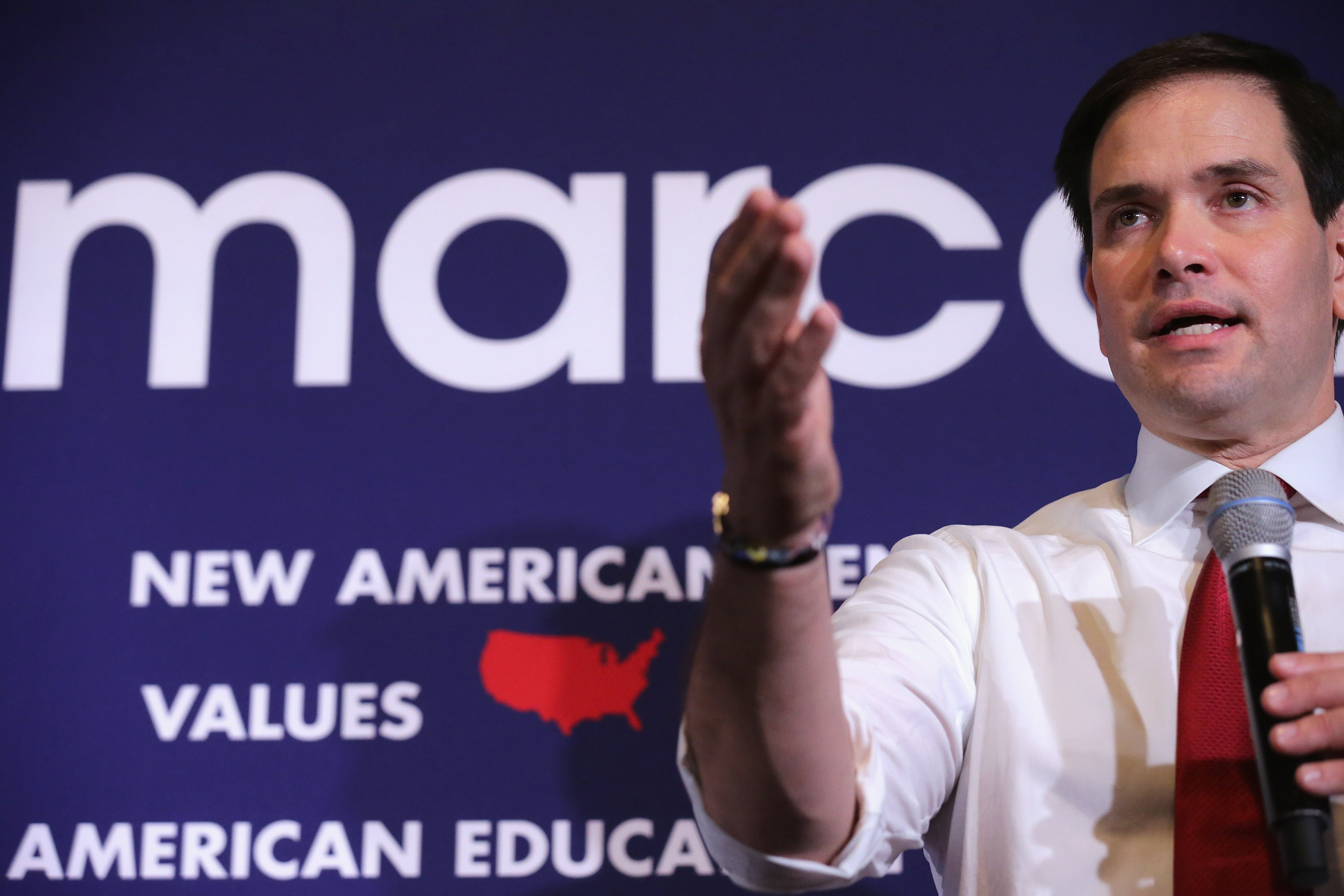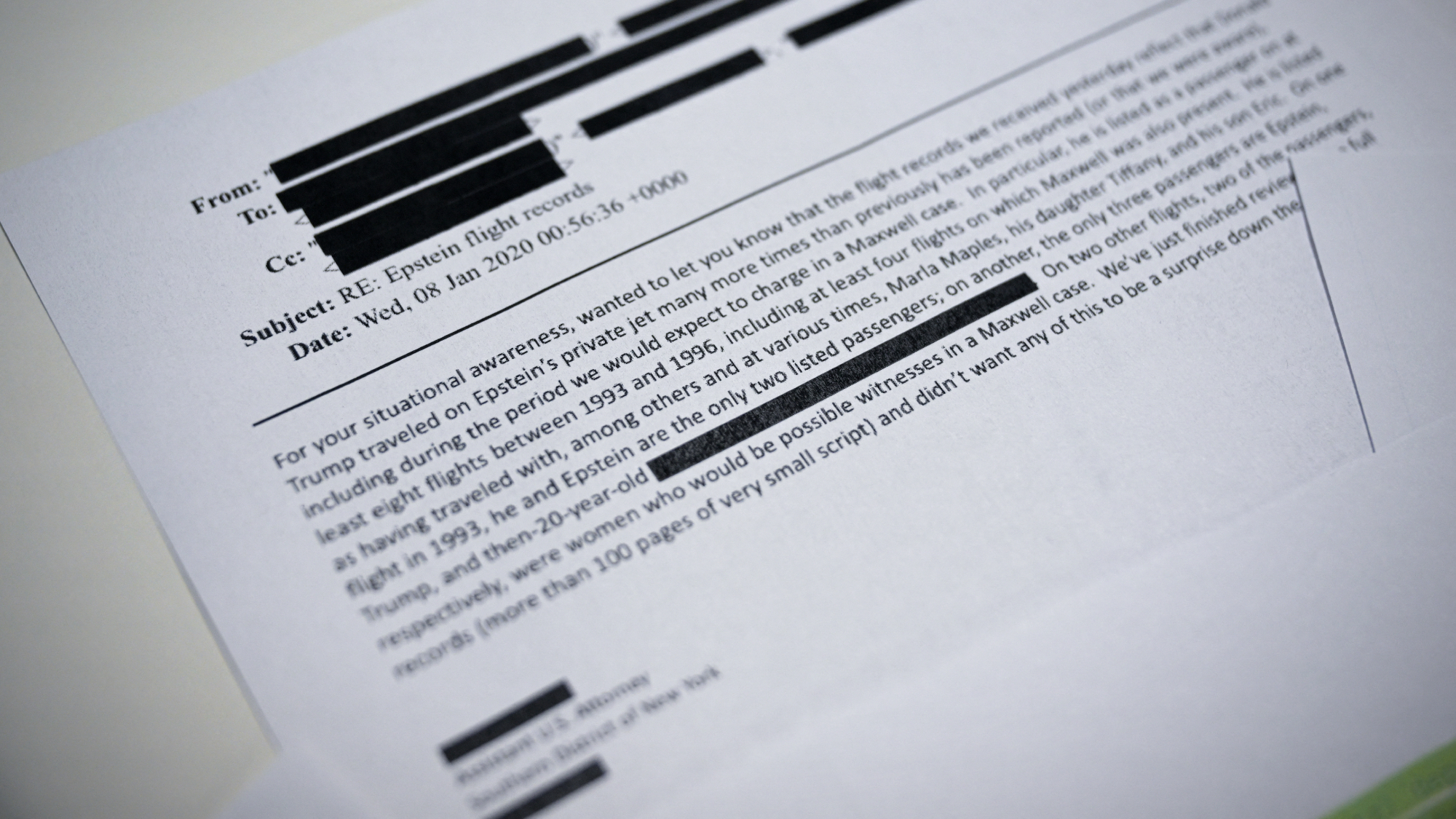Marco Rubio is not a robot. He just plays one on TV.
How Marco Rubio fell victim to the pitfalls of consistent messaging


Everybody is aghast about Marco Rubio's performance at Saturday night's Republican presidential debate. It was pretty hard not to cringe: Chris Christie criticized Rubio for giving canned answers to questions — and Rubio responded by giving the same canned answer to the question. Several times.
Conventional wisdom quickly crystallized around this being a portentous moment for the Florida senator. It was the last debate before the New Hampshire primary and expectations were high given his stronger-than-expected finish in Iowa and his string of recent debate performances. Worse, the exchange seemed to crystallize many of the fears about Rubio: that he is too young and inexperienced to be president; that he lacks depth; and that, relatedly, he chokes under pressure.
These are all fair points when it comes to playing the political game. But they doesn't really measure up with reality.
The Week
Escape your echo chamber. Get the facts behind the news, plus analysis from multiple perspectives.

Sign up for The Week's Free Newsletters
From our morning news briefing to a weekly Good News Newsletter, get the best of The Week delivered directly to your inbox.
From our morning news briefing to a weekly Good News Newsletter, get the best of The Week delivered directly to your inbox.
First off, this was just one moment in one debate, and campaigns rarely turn on such events.
But more importantly, this narrative of Rubio-bot, the scripted Rubio, is strange given that Rubio has actually shown a surprising amount of depth for a politician, even for a presidential candidate. As Reihan Salam pointed out recently, Rubio began his career in city politics — where the important stuff is not to make speeches, but to figure out how to fix potholes. As speaker of the Florida House, Rubio wrote an ideas book, 100 Innovative Ideas for Florida's Future, that was pretty policy-dense as far as these things go.
And in longer interviews and town halls, he's consistently shown command of the issues. Here's how Jonathan Last, a senior writer at The Weekly Standard, described a recent Rubio performance at a New Hampshire town hall:
During the Q&A, he's asked by a doctor about the future of medicine. Rubio starts by talking about the decline in physician legacies — how the children of doctors no longer become doctors — then moves to talk about the decline of specialists; then moves to explain how the dwindling number of specialists create access problems; and then concludes by explaining his reform plan. During the course of the morning he talks like this — fluidly and lucidly — about GMO foods, farming, mandatory-minimum sentences, criminal forfeiture, and vaccinations. [The Weekly Standard]
This is not a robot or an airhead being fed talking points by consultants.
A free daily email with the biggest news stories of the day – and the best features from TheWeek.com
So what gives?
Here's the reality: Marco Rubio's "gaffe" wasn't so much an indictment of him, but an indictment of the whole process.
It boils down to media saturation. While people in the media and political class have heard stump speeches by politicians a hundred times, actual voters only get to hear them once, if that. And the bits they hear on TV work like advertising: Because they only give it part of their attention, repetition is the only way to ensure they actually listen. But it's a double-edged sword. As we've seen with #Rubiobotgate, a stray comment will get enlarged a thousand times and endlessly replayed on TV.
This is the paradox of modern politics: Voters constantly complain about politicians being over-scripted and over-cautious, but relentlessly punish them for saying anything even slightly out of the ordinary. (Unless you're Donald Trump, of course.) And our media culture demands that people express themselves in two-minute soundbites, because viewers don't have the attention span for more.
So you get politicians who learn, and rehearse, and repeat soundbites ad infinitum. It's said that the worst political scandals are the ones where a politician accidentally tells the truth. Here, we have a political scandal because a politician actually demonstrated the truth.
This is the sort of politician voters demand, so this is the sort of politician voters get.
Pascal-Emmanuel Gobry is a writer and fellow at the Ethics and Public Policy Center. His writing has appeared at Forbes, The Atlantic, First Things, Commentary Magazine, The Daily Beast, The Federalist, Quartz, and other places. He lives in Paris with his beloved wife and daughter.
-
 Bari Weiss’ ‘60 Minutes’ scandal is about more than one report
Bari Weiss’ ‘60 Minutes’ scandal is about more than one reportIN THE SPOTLIGHT By blocking an approved segment on a controversial prison holding US deportees in El Salvador, the editor-in-chief of CBS News has become the main story
-
 Has Zohran Mamdani shown the Democrats how to win again?
Has Zohran Mamdani shown the Democrats how to win again?Today’s Big Question New York City mayoral election touted as victory for left-wing populists but moderate centrist wins elsewhere present more complex path for Democratic Party
-
 Millions turn out for anti-Trump ‘No Kings’ rallies
Millions turn out for anti-Trump ‘No Kings’ ralliesSpeed Read An estimated 7 million people participated, 2 million more than at the first ‘No Kings’ protest in June
-
 Ghislaine Maxwell: angling for a Trump pardon
Ghislaine Maxwell: angling for a Trump pardonTalking Point Convicted sex trafficker's testimony could shed new light on president's links to Jeffrey Epstein
-
 The last words and final moments of 40 presidents
The last words and final moments of 40 presidentsThe Explainer Some are eloquent quotes worthy of the holders of the highest office in the nation, and others... aren't
-
 The JFK files: the truth at last?
The JFK files: the truth at last?In The Spotlight More than 64,000 previously classified documents relating the 1963 assassination of John F. Kennedy have been released by the Trump administration
-
 'Seriously, not literally': how should the world take Donald Trump?
'Seriously, not literally': how should the world take Donald Trump?Today's big question White House rhetoric and reality look likely to become increasingly blurred
-
 Will Trump's 'madman' strategy pay off?
Will Trump's 'madman' strategy pay off?Today's Big Question Incoming US president likes to seem unpredictable but, this time round, world leaders could be wise to his playbook



